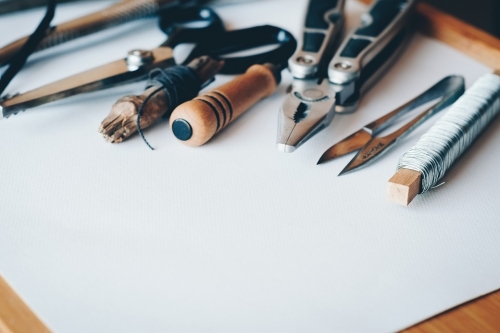As an expat in a new country, you may have very specific ideas about your ideal home and you may find it hard to find a home that lives up to them. You may come across a home that has a lovely kitchen, only to look further and discover that the bedroom is too small. Or the bathroom may be just what you wanted, but the house has barely any yard. Plus, there is the matter of moving to a new, different country, which is a big life decision in itself. Building a home is an investment, but it can help you to create exactly what you wanted, rather than settling for less. As with any other investment, however, it is vital to do your research and get the answers to all your questions.Panama is located in the southern territory of Central America and shares borders with Colombia and Costa Rica in the southeast and west respectively. In the north lies the Caribbean Sea, and in the south there is the Pacific Ocean. The Panama Canal is known throughout the world and has served as an important trade and transportation route between the Pacific and Atlantic territories. Panama offers all the amenities one needs and prices are affordable, as the country’s economy is still growing. Expats will find that there are excellent properties for sale in Panama that may be hard to come by in other parts of the world.
Foreigners have the same rights as citizens of Panama when it comes to property ownership. The procedure of buying real estate here is simple and easy. There are not the same tiresome property laws in Panama that may be present in other countries. However, it is still important to be cautious when purchasing real estate in Panama, even though there are few hassles.
Points to consider
There are certain factors that must be kept in mind when buying property in Panama.
Land costs: Panama, being a small country, has a variety of pricing based on the location and typography of the area. Land closer to beach areas and mountainous regions is more expensive. The advantage of buying land in Panama is the proximity to everything. It is possible to live in a home in the mountains and still make it to the beach in just fifteen minutes.
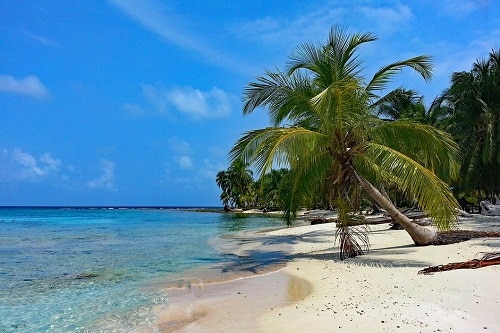
Land types: It is essential to familiarize yourself with the terrain of the property of your choice before you initiate the building process. This is because the construction may be affected by factors such as the direction of the water flow and how it impacts the land.
Labor costs: Expats will find that the labor costs in Panama are far lower than what they would have to shell out for in many other places, such as North America.
Material costs: Like in other parts of the world, you get what you pay for. Inexpensive materials will yield lower quality. Also, remember that Panama is a tropical destination and therefore weather patterns can impact the building materials. It is advisable to be informed about which materials are necessary and what is right for your project.
When to build: Panama goes through two seasons: the rainy season and the dry season. Building is not advisable during the rainy season. The ideal time to begin the project is in December or January. For a 1000sq foot house, the average building period is about four months.
The process of buying property in Panama is similar to that in other countries like the United States. However, there are some important variations. Here is a step-by-step guide to buying property in Panama.
Confirming the title
The first step is to confirm legal ownership of the property – once you have narrowed down the property of your choice, request the owner to share the public deed, which shows the title of the property (the name of the owner and a description of the property itself), and the ownership and encumbrances certificate (which proves that the property is free of any legal or financial complications) from the public registry.
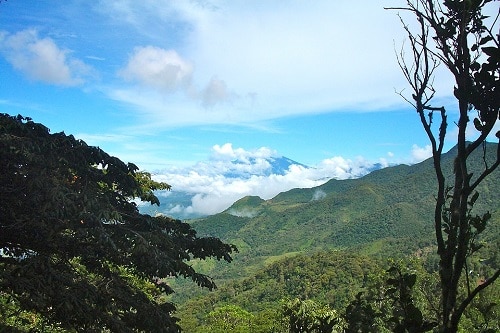
Your lawyer will use these documents to search for and verify the status of the property. Ensure that the owner provides you with the original documents and that they contain the signatures and official registration stamps. If the owner of the property is unable to provide you with these documents, you can ask for just the property number, which your lawyer can use instead.
The buy and sell agreement
In the buy and sell agreement, you as the buyer will make the initial payment (a previously agreed-upon amount) to the seller, and a date will be fixed for the title transfer. After this point, if either party backs out of the deal, they must pay a penalty.
The agreement also specifies a schedule for payment of the transfer tax by the seller and the obtaining of the necessary clearance certificates for the title transfer; in the meantime, you as the buyer will arrange for the payment during this time. Eventually the contract is signed.
Title transfer
An additional check needs to be done on the property to rule out the possibility of any existing liens or liabilities, and both parties then head sign the final contract with the help of a public notary. A distinction must be made here: unlike in the US, for example, the notaries in Panama are senior officials with important roles and duties, and dealings with them will be conducted accordingly.
Closing
Once due diligence is done and all the documents are gathered, the time comes to close the transaction. The timelines for closing the deal and the method of funds transfer should be mentioned in the purchase agreement. This may depend upon the status of your paperwork, how soon the buyers can arrange for the funds, and the manner in which the property is being transferred.
Usually, it can take about 30 to 60 days from the signing of the agreement. The closing date depends on how soon the public registry in Panama takes to process the paperwork involved in the transfer. The public registry will fast track the process for an additional fee.
Upon completion of the registration process, you will have in your hands the registered deed, a copy of which must be filed with the tax records department.
Building a home
When building a home in Panama, the architect is required to submit an application. Once this happens, the architect owns the plans and any alterations in the original plans can only be carried out with prior approval of the architect. This entails additional charges. A remodel permit must also be submitted in these cases. More than one architect may be hired for the building of the home. The documents required for the occupancy permit are signed by the original general contractor.
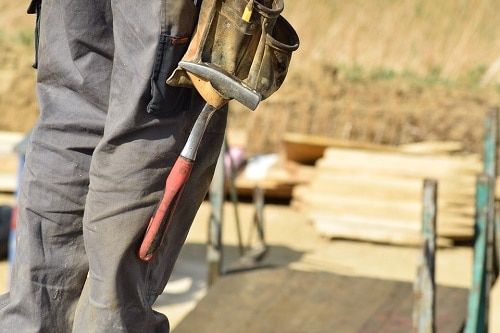
It must be kept in mind that architects in Panama tend to work with wealthy residents in situations where the lifestyle aims and designs of the houses are vastly different from Canadian or US nationals. You also cannot use Canadian or American architects’ plans found on the internet in Panama, as homes in Panama are built as concrete bloc homes that are less prone to damage during earthquakes. Another point that must be mentioned is that you can rarely request Panamanian contractors and builders to do things in the same way they are done back in your home country. Any special specifications that you want must be included in the contract.
Here are some tips on building a home in Panama.
Find architecture plans on the internet: You can use architecture plans you have found on the internet, but remember that they should be meant for concrete block construction, which is the way houses in Panama are built. You can buy the plans and use software like AutoCAD to modify them if needed.
Hire a Panama architect: Your architect can modify the plans for earthquake construction.
Negotiate the costs: Negotiate with the architect that you should be the owner of the plans. Also, the costs for any alterations in the future should be given to you in writing. Your architect must visit the construction site, so you will need to get the number of visits and the charges for these down in writing.
Hire a lawyer: Employ a reputed and competent Panama real estate lawyer to draw up the contracts in English and Spanish.
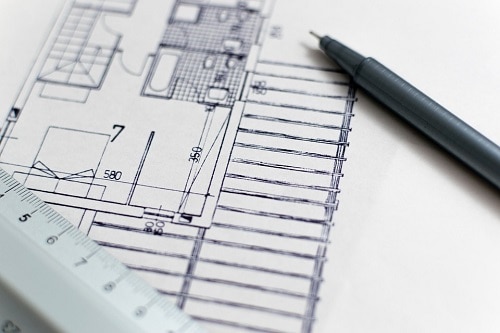
Open a construction account: This can be done with a local bank or escrow company that can issue pre-agreed payments to your general contractor. Someone from the escrow company or a loan official will be there to inspect the site before making each payment. This is helpful, as it will prevent fraud by the contractor.
Bidding: You can put the plans up for bidding once the architect has included detailed specifications up to your satisfaction.
Doing it yourself: If you opt to do it yourself to reduce expenses, make a contract with a local contractor to construct the shell of the home, called ‘in the gray’. You can then complete the building yourself. You can hire tile layers, plumbers, electricians and painters, but the documents must be submitted by the first contractor who constructed the shell in order to get the occupancy permit. For this you will need to have a written contract that covers these charges.
Acting as a construction manager: If you choose to act as a construction manager and hire subcontractors, you will be required to establish a credit line from the local bank. This will enable you to order the required materials and pay the charges. This is an economical step as you can depend on the builder to place orders for the necessary materials, which he will get at a 10 to 15 percent discount, and yet charge you up to 30 percent over retail as a mark up. Your credit line will make sure that all subcontractors are paid their due, and the materials and supplies are paid for.
Visit the site every day: It is advisable to visit the site daily to ensure that the work is being carried out correctly.
Some expats choose to buy an existing structure built for a foreigner and then remodel it, as such a home will likely have different specifications than a local, and these could better fulfill their needs. Another alternative is to request references for reliable builders from other expats and use their architects to draw up the plans. This could work out to be cheaper than purchasing architect plans on the internet and having these modified by an architect who will charge higher fees.
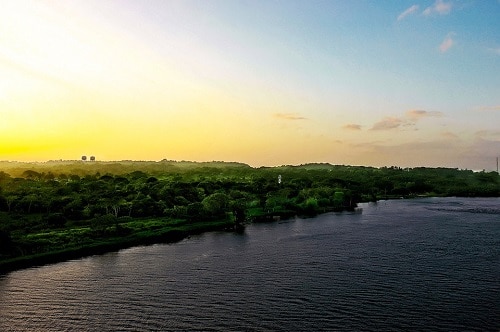
Here are some common FAQs about building a home in Panama.
Is it safe for expats to buy property in Panama?
Yes, buying property in Panama is generally considered safe. The country has a number of laws that protect foreign investment. Private property is also safeguarded by the country’s constitution.
Is it legal for expats to buy property in Panama?
Yes, it is legal for expats to own titled property in their names. It is sometimes recommended that expats hold all property under the name of a corporation in Panama in order to protect the asset and also for income tax purposes.
What are the government taxes or charges for the transfer of property titles to the buyer?
The Panamanian government levies a 2% property title transfer tax, which is based on the value set in the registered sale deed. Based on the sale value, there is also a 3% advance of capital gains tax. In addition, there are notary fees that range from $200 to $300, and public registry fees for registering the sale of real estate, which is based on the sale value.
In the case of beachfront properties, is it legal to obstruct public access to the beach?
Panamanian laws allow public access to all beaches, lakes, rivers and oceans in the country. Therefore public access must be allowed unless there is access to the beach within 1000 meters from the property in question.
Have you built a home in Panama? Share your experiences in the comments below, or answer the questions here to be featured in an interview!

